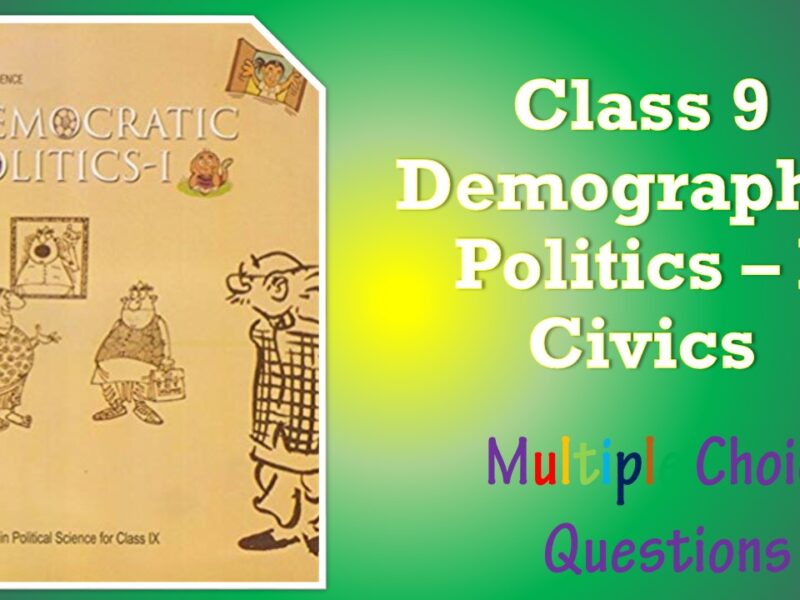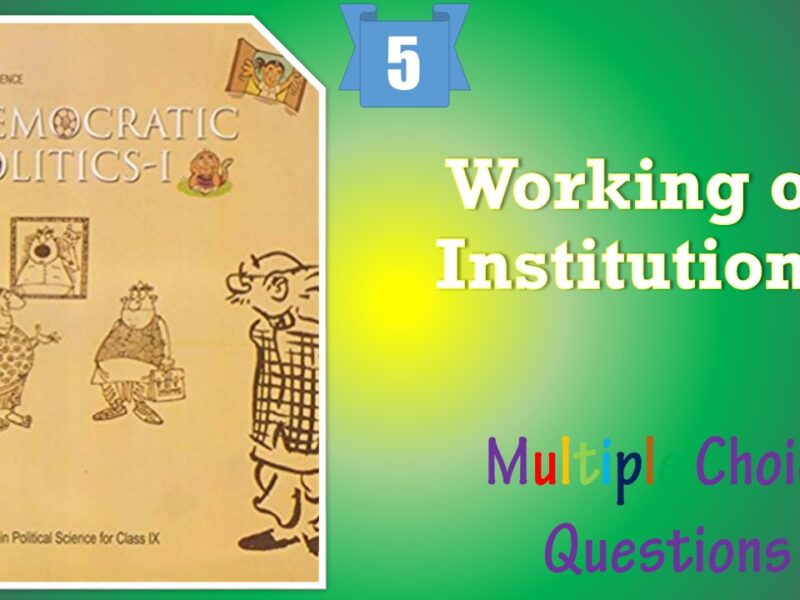CBSE Class 10 Social Science Chapter 5 Popular Struggles and Movements Multiple Choice Questions with Answers. MCQ Class 10 Civics Popular Struggles and Movements with Answers was Prepared Based on Latest Exam Pattern. Students can solve NCERT Class 10 Civics Popular Struggles and Movements MCQs with Answers to know their preparation level.
Students who are searching for NCERT MCQ Questions for Class 10 Civics Popular Struggles and Movements with Answers are compiled here to get good practice on all fundamentals. Know your preparation level on MCQ Questions for Class 10 Social Science with Answers. You can also verify your answers from our provided MCQ Class 10 Civics Popular Struggles and Movements with Answers. So, ace up your preparation with MCQ of Chapter 5 Civics Objective Questions.
MCQ Class 10 Civics Popular Struggles and Movements with Answers - Set - 3
Question 1:
Nepal witnessed an extraordinary popular movement in
(a) April 1990
(b) February 2005
(c) April 2006
(d) April 2004
Correct Answer – (C)
Question 2 :
In 2006 the party that came to power in Bolivia was
(a) SPA —Seven Party Alliance
(b) Socialist Party
(c) Communist Party
(d) Nationalist Party
Correct Answer – (B)
Question 3 :
Which one of the following was the main aim to start movement on April 2006, in Nepal?
(a) To control over government
(b) To snatch power from the king
(c) To restore democracy
(d) To dethrone the king
Correct Answer – (C)
Question 4 :
What was the main reason of Bolivia’s Water War? Choose the most appropriate answer from the following:
(a) Privatisation of water supply
(b) Irregular water supply
(c) Supply of poor quality water
(d) An increase in water price by four times.
Correct Answer – (D)
Question 5 :
In dealing with popular struggles and conflicting demands, which one of the following statements is not correct about democracy?
(a) Democracy almost invariably involves conflicts of interests and viewpoints.
(b) The conflicts and mobilisation are expressed in organised ways based on new political organisations.
(c) In a democracy significant decisions take place through consensus and do not involve any conflict at all.
Correct Answer – (A)
MCQ Class 10 Civics Popular Struggles and Movements with Answers
Question 6 :
People’s struggle in Bolivia was
(a) to establish democracy
(b) about foundation of country’s politics
(c) against privatisation of water
(d) against privatisation of electricity
Correct Answer – (C)
Question 7 :
Which of the following is not a movement?
(a) Narmada Bachao Andolan
(b) Women’s Movement
(c) Struggle in Nepal
(d) All India Trade Union Congress
Correct Answer – (D)
Question 8 :
Which one of the following political parties came to power in Bolivia in 2006?
(a) The Communist Party
(b) The Republican Party
(c) The Socialist Party
(d) The Conservative Party
Correct Answer – (C)
Question 9 :
Which one of the following statements is correct regarding ‘sectional interest groups’?
(a) They promote collective rather than selective good.
(b) Their principal concern is betterment and well-being of their members, not society in general.
(c) They aim to help groups other than their own members.
(d) They do not seek to promote the interest of a particular section or group of society.
Correct Answer – (B)
Question 10 :
In 2006 the party that came to power in Bolivia was
(a) SPA —Seven Party Alliance
(b) Socialist Party
(c) Communist Party
(d) Nationalist Party
Correct Answer – (B)
- NCERT Solutions Class 10 Civics Chapter 1 : Power Sharing
- NCERT Solutions Class 10 Civics Chapter 2 : Federalism
- NCERT Solutions Class 10 Civics Chapter 3 : Democracy and Diversity
- NCERT Solutions Class 10 Civics Chapter 4 : Gender Religion and Caste
- NCERT Solutions Class 10 Civics Chapter 5 : Popular Struggles and Movements
- NCERT Solutions Class 10 Social Science Democratic Politics II Textbook



